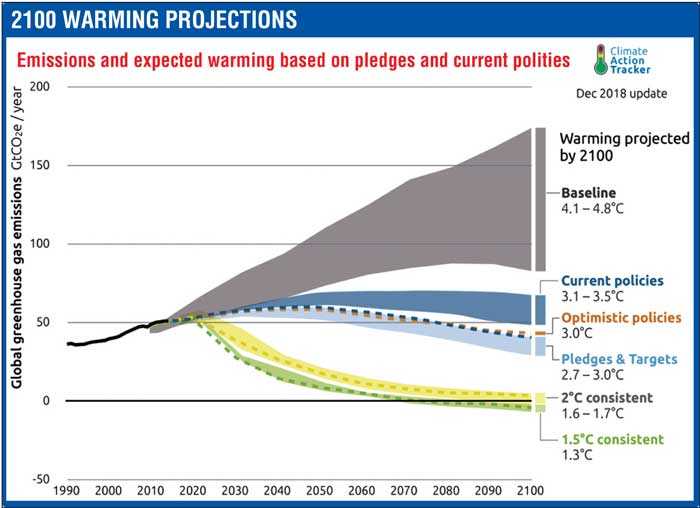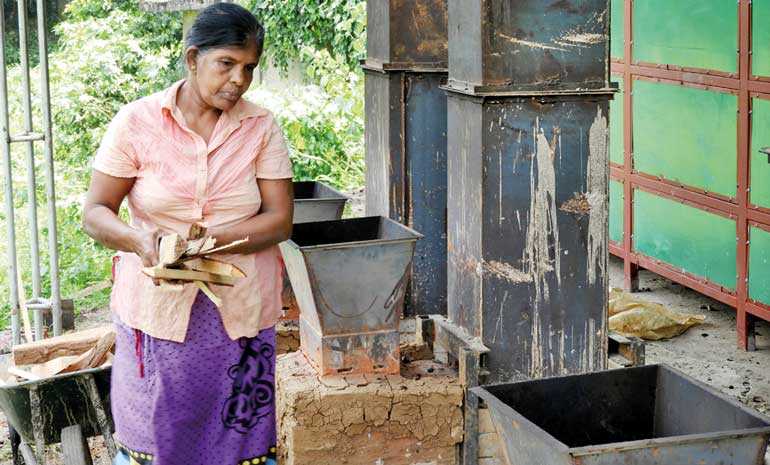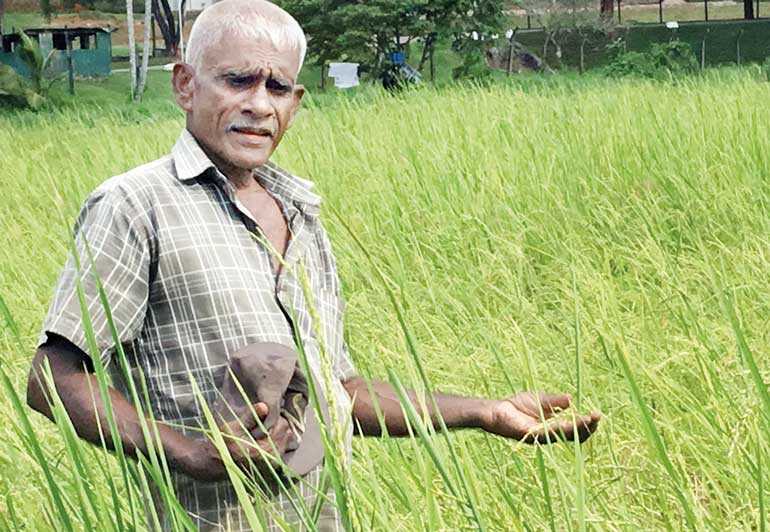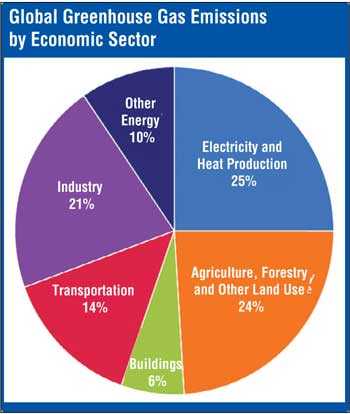Thursday Feb 19, 2026
Thursday Feb 19, 2026
Tuesday, 17 September 2019 00:00 - - {{hitsCtrl.values.hits}}


Biomass

Smallholder farmer
By Tharuka Dissanaike
In Bangkok the mood was sombre – as the Asia Pacific Climate Week drew to a close last Friday. Outside the regional headquarters of the UN, protesters were lined up to challenge regional governments on their continued use of coal and fossil fuel to power growing economies. Inside the building, governments, civil society and UN agreed that a ‘transformation’ is needed from energy to agriculture to city planning. Across the board, it was agreed that this transformation is urgent and immediate if we are to save the world from runaway-climate change.
But the how, the what, and the when of this transformation remains fairly grey and cloudy – reflecting the rain-drenched skies over Bangkok last week. Scaling measures to reverse climate change will require large-scale disruption, clarity of purpose and unwavering commitment – from governments and from all of us. 
Climate change is no longer an abstract threat. It is easy to see the catastrophic damage of extreme weather events – cyclones, high winds, and landslides. But the creeping impacts of drought are becoming as damaging. One study recently estimated that the warmer and drier climate has affected productivity of the 10 most important agricultural crops worldwide.
In Sri Lanka too, all our food and export crops are affected by altered rainfall seasons and longer drought (or dry periods). From the farmer in Anuradhapura to the tea planter in Nuwara Eliya, those engaged in agriculture are at the frontlines of climate change – experiencing first-hand the immediate impacts of a warmer world.
Despite the global commitments in Paris in 2015 to scale back on fossil fuels, stop deforestation and revamp our consumption – change, we all know it, is extremely slow. The earth’s warming trend is on a dangerous trajectory. Basically, the ambition of keeping global warming confined to just 1.5 degrees over the pre-industrial level is now an impossible dream. The most likely scenario, if we go on our ‘business as usual’ is double that level of warming. In just 30 years, the earth will be a very different planet – facing what scientists chillingly call ‘irreversible change’ – a tipping point after which little can be done to undo the damage.
So, it is clear that we cannot afford business as usual. We have to seriously disrupt the way we do business in many arenas to bring about the transformation that everyone agrees is vital to put brakes on the climate tide.
Cleaning up energy, transportation and agriculture systems
So where should we put our efforts and money? Again, there is little debate that cleaning up energy, transportation and agriculture systems will give us the biggest ‘bang for the buck’.
Just take Sri Lanka’s own situation as a microcosm of the global efforts and the challenges of addressing curbing emissions.
To fuel the kind of growth required to catapult us in to high income bracket, Sri Lanka depends heavily on imported fuels – coal and oil – for energy and transport. The country’s energy policy is explicit that the transition from the coal pathway to more solar, wind and other renewables will happen but will take time. In 2030, half the electricity generation will be powered through renewable resources, including large hydros.
Despite taking an early lead in the region in introducing electric and hybrid vehicles, infrastructure, attitudes and policy incoherence holds back the reversal of what today is a momentum towards more and more private vehicle ownership to public transport, cycling and walking. In agriculture, Sri Lanka like many other countries, focuses on more irrigation and increasing production, using subsidies to promote chemical intensive cultivation.
Processed fuelwood as an alternative fuel
In Sri Lanka, UNDP works with government, non-government and private sector organisations to support technological innovation, mobilise financing and deliver home-grown solutions to the climate problem. A good example would be the joint UNDP-FAO project to popularise processed fuelwood as an alternative fuel for industry. The project supports fuelwood cultivation, certification, value addition, efficient storage and transportation and finally fuel-efficient kilns, boilers, etc. for industry. Greenhouse gas saving was achieved by growing fuelwood in mixed crop plantations and replacing fossil fuels. 
In the agriculture sector, UNDP supports farmers with climate forecasts and seasonal advisories to plan their cultivation. The Meteorological Department produces seasonal rainfall forecasts which are converted to agricultural advisories and then transmitted through the extension services to farmers as they plan the water allocation and crop selection for each season. This trial has run for two years and is continuously being upgraded to improve accuracy and targeting to reach as many farmers as possible.
Climate change is no longer an abstract threat. It is easy to see the catastrophic damage of extreme weather events – cyclones, high winds, and landslides. But the creeping impacts of drought are becoming as damaging. One study recently estimated that the warmer and drier climate has affected productivity of the 10 most important agricultural crops worldwide.
Food production systems and forestry together account for one third of the greenhouse gases that are choking the earth’s cooling system. Producing meat, globally, is charged with the crime of being the worst offender. Much of the Amazon’s present destruction is attributed to expanding cattle ranching or growing soy or corn to feed livestock.
The burning of the Amazon thickens the miasma surrounding the global climate debate and the deeply political positioning of certain countries. Politicians and big businesses back the controversial land grabbing for farm and ranch expansion, claiming their right to use the forest for short-term nationalistic gain.
Seeds of hope
But it is through this smog, that we see the seeds of hope as well.
The fires urged seven South American countries to sign a pact to strengthen protection for the Amazon and set up sophisticated systems to police forest crimes, including illegal land grabbing. It urged indigenous tribes to fight back for their forest homes and urged private sector to censure their peers who contribute to or gain out of the deforestation in the Amazon. There are encouraging signs of new efforts to finance sustainable agribusiness.
The Responsible Commodities Facility is the world’s first green bonds scheme to provide low-interest credit lines for sustainable food production. In Sri Lanka, UNDP and IFC (International Finance Corporation) supported the Central Bank to develop a Green Banking Initiative, encouraging banks to lend to responsible and sustainable businesses Financing stronger climate change ambitions, especially from developing nations, will be the top agenda when world leaders meet in New York for the UN General Assembly and Climate Summit.
As we hurtle towards an uncertain future, it is up to each of us – to learn and understand about the challenges of climate change and commitments our government (s) have made. It is up to us to urge our leaders to take the right actions, to become the consumers demanding more accountability from the corporate supply chain and to nudge the warming trajectory to the green as we define a new, cleaner pathway to grow and prosper as countries and as people. After all, there is no planet B!
(The writer works as the Policy and Design Specialist for Environment/Climate Change at UNDP Sri Lanka.)